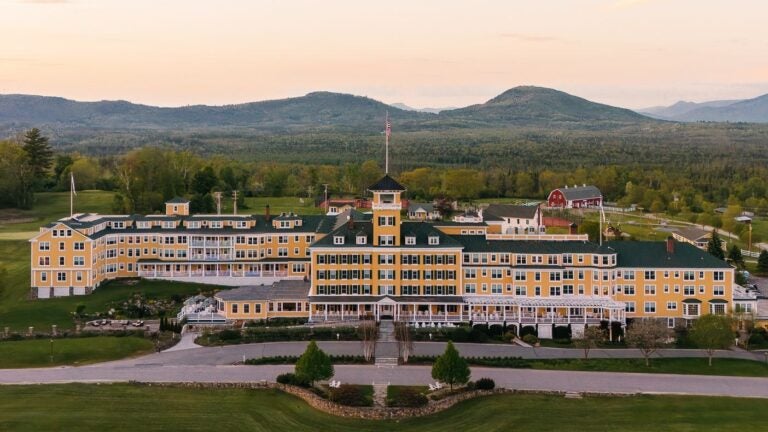Entertainment
A New Industry Has Joined Climate Week This Year: Entertainment

This climate week the entertainment industry is leading
Many industries are stalwarts at Climate Week, such as energy, finance, infrastructure, tech and even news media. Next week, these familiar voices will carefully set out how they are building a sustainable future in practical, sensible, and rational ways.
But logic won’t get us to a sustainable future without some magic. Alongside the science-based strategies during Climate Week, we also need to welcome imagination, storytelling, mythos and compelling narratives.
It’s easy to see a #ClimateWeekNYC role for policymakers, scientists, and activists. But we also need filmmakers, creators, writers and actors to take centre stage in the climate conversation. Because storytelling is one of the most powerful tools we have to inspire action, foster empathy, and make the complex issue of climate change feel relatable and real. That’s why I’m so excited that the entertainment industry is taking a leading role this Climate Week.
Human beings are wired for stories. From cave paintings and nursery rhymes to social media and streaming platforms, storytelling is how people make sense of things, share knowledge, and feel connected to the world. In the face of the climate crisis – often defined by vast scales, distant forecasts, and complex scientific data – storytelling offers something that facts alone cannot: emotional resonance and personal relevance.
Science tells us what is happening, but stories make us care. And that’s where the entertainment industry has a unique role to play. The climate crisis is not just an environmental or economic issue; it’s an intimately human and immediate one. It impacts our health, homes, and hopes. It shapes migration patterns, global inequality, and the future of generations to come. But without compelling narratives, it’s easy for the climate crisis to feel too overwhelming or distant for many to engage with.
The entertainment industry can bring climate reality, and solutions, into our living rooms, phones and local cinemas. Through solutionist characters, bold plotlines, and imaginative world-building, films and TV shows can connect us to our shared lived experience in this pivotal moment. More importantly, these stories allow us to imagine a future shaped by climate action.
A study by RARE found that 70% of American respondents think Hollywood should include climate-friendly actions on screen to help address climate change. Another survey revealed that 1 in 3 Britons say TV has inspired them to make sustainable changes in their lifestyles. And according to the Aspen Insitute, 74% of parents agree that children’s media should include climate solutions.
Beyond the numbers, there’s been a noticeable shift in pop culture, with some of the most successful films, TV shows, and documentaries incorporating climate change into their plots. From the dystopian world of Mad Max: Fury Road to the ecological undertones in Avatar, and the positive eco-future in The Expanse, climate themes are already seeping into mainstream content – and hitting box-office returns. The climate parody Don’t Look Up is the second most popular Netflix film of all time! Characters who care about the environment, whether subtly or overtly, resonate because they reflect a reality that more and more people face: the growing anxiety about our planet’s future.
This is not just wishful thinking or a passing trend. Shows like My Octopus Teacher and Unstable offer us intimate and emotional stories of change. Even Love Island has profiled vintage clothing and reusable bottles. Climate and sustainability are showing up in sci-fi, and also comedy, romances and reality TV. This solutions storytelling, when done right, doesn’t just raise awareness – it fuels imagination. It gives us hope that solutions exist and shows us what collective action could look like.
Anyone interested in climate action should be interested in excellent storytelling.
Where To Find The Entertainment Industry During Climate Week:
September 20-22
The Climate Film Fest – with a programme of screenings and talks. Go along to see 57 new and classic films, plus energising human stories.
September 23
Stand-up for Humans – comedy tour featuring some very funny humans and very science-y experts who will team up to entertain, educate, and help shift the climate change vibe.
Hollywood Climate Summit NYC – attend an evening filled with political thrillers, disinformation, and climate comedy.
September 24
Sustainability Storytelling: Voices from Leading Studios – join sustainability executives from leading Hollywood studios as they share their perspectives on sustainability in storytelling – with Netflix, Paramount Global, NBC Universal and Black Pearl.
Does Sustainability Storytelling Inspire Change? – film and TV are often recognised for their ability to change hearts and minds – but is there solid evidence to back these anecdotal claims? In this session, social scientists and Hollywood storytellers will synthesise the latest research and practical experience on this topic.
Dive Into Our Oceans: Preview Clips & Conversation with Filmmaker James Honeyborne – experience an early screening of select clips from Our Oceans, an upcoming Netflix docuseries that uncovers the mesmerising stories of our planet’s five majestic oceans. Get a sneak peek before the series’ November release, followed by a discussion with the Emmy® Award-winning wildlife filmmaker James Honeyborne and marine biologist turned ocean advocate Danni Washington.
Entertaining Audiences… One Sustainability Scene at a Time – join the writers, producers, and directors behind your favourite shows and movies, as they reveal the thinking and inspiration for their most iconic sustainability scenes. Featuring creators of My Octopus Teacher, True Detective Night Country and Unstable.
All Week
Arts For The Future Fest – attend an artist-led celebration of arts and cultural expressions in the lead up to and during Climate Week.
Climate Imaginarium – whether you’re a filmmaker, writer, or just passionate about the environment, these events are for you. Learn what makes an impactful story that inspires change both on and off camera.
The Moral of The Story
One thing I expect all these expert storytellers to reinforce during Climate Week is the giant chasm between brilliant storytelling versus delivering a sermon. One of the greatest risks the entertainment industry faces in telling climate stories is the temptation to moralise. Overly didactic films or TV shows—those that hammer home the ‘right’ way to think or behave – will alienate audiences. Audiences can spot a moralistic tale from a mile away, and it usually leaves them cold.
For climate storytelling to be effective, it can’t just be a call to action—it has to be must-watch content. That means multidimensional characters, engaging plots, and a recognition that audiences don’t want to be preached at. They want to be moved, entertained, and given room to reflect.
Audiences are ready for this. They want more than doom and gloom—they want stories of resilience, of collective action, and of a future worth the effort. And if there’s one thing Hollywood knows how to do, it’s hooking us on stories of what’s worth fighting for.









